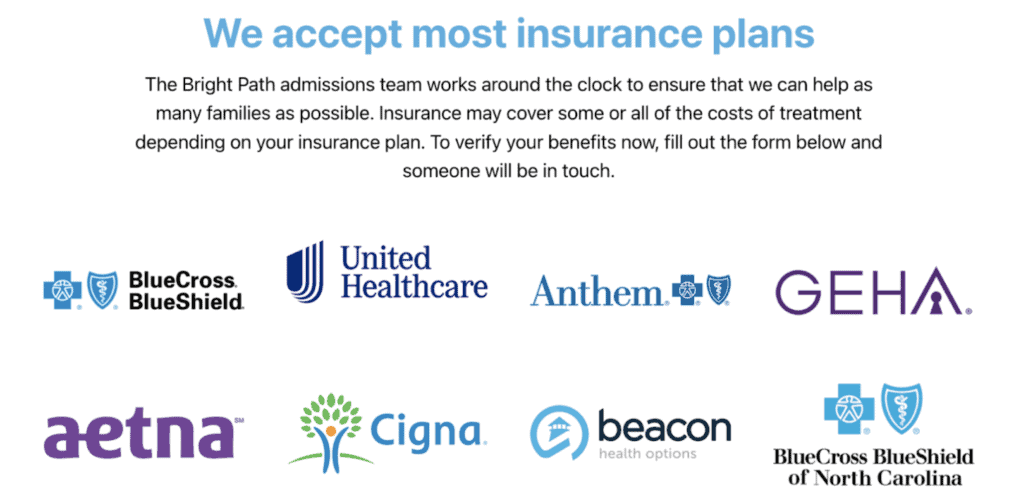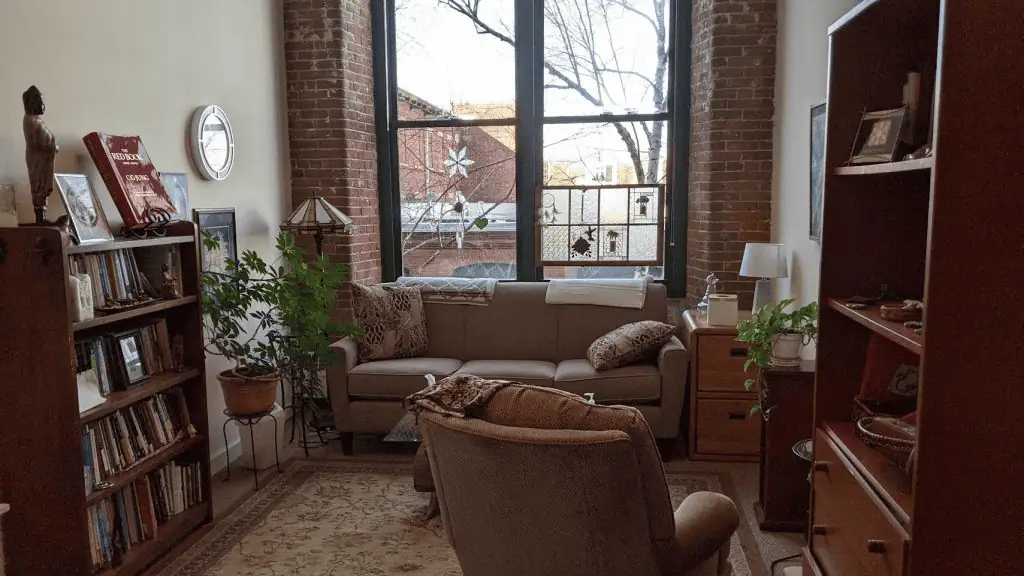
For many individuals battling addiction, the road to recovery can be fraught with obstacles. While rehab and other treatment programs can be highly effective, for some, the journey is marked by chronic relapse—returning to substance use despite repeated attempts at recovery. This cycle can be incredibly discouraging, but it’s important to understand that chronic relapse is not a personal failure. It simply means that the addiction is complex and requires more personalized and comprehensive treatment solutions.
At Addiction Helpline America, we recognize that chronic relapse presents a unique challenge in the recovery process. That’s why we are dedicated to offering specialized treatment strategies designed to break the cycle and give individuals the tools they need to live a healthy, sober life.
What is Chronic Relapse?
Chronic relapse is characterized by the recurring return to addictive behaviors after previous treatment attempts. It’s a frustrating and often disheartening experience, but it’s important to understand that relapse doesn’t mean a person cannot recover. Rather, it signifies that the treatment plan may need to be adjusted, taking into account additional factors such as underlying mental health conditions, environmental influences, or personal triggers.
People who experience chronic relapse often feel like they are stuck in a never-ending loop, but with the right support and treatment, they can break free from this cycle. Understanding the cycle of relapse is the first step in developing a comprehensive plan that addresses not only the addiction but the underlying causes of relapse itself.
Why Do Some People Experience Chronic Relapse?
While every person’s struggle with addiction is unique, there are common factors that contribute to chronic relapse. Understanding these factors can help individuals, their families, and treatment professionals develop a more tailored approach to recovery.
1. Inadequate or Incomplete Treatment
Traditional rehab programs may not fully address the underlying issues that contribute to addiction. For people experiencing chronic relapse, treatment needs to go beyond merely addressing the substance use itself. It must consider co-occurring disorders such as anxiety, depression, or trauma, which could be fueling the addiction. If these root causes are not addressed in treatment, the risk of relapse increases, as individuals may turn to substances to cope with these unhealed wounds.
A more comprehensive, personalized treatment approach can help individuals better understand their addiction and find healthier ways to manage triggers. Treatment programs that focus on the whole person—mentally, emotionally, and physically—tend to have better outcomes for those experiencing chronic relapse.
2. Environmental Triggers
Environmental factors can significantly influence the likelihood of relapse. Returning to an environment where substance use is prevalent or where old patterns and relationships exist can make it harder to stay sober. Triggers can include people, places, and situations associated with previous use, making it crucial for individuals to take proactive steps to avoid or manage these triggers.
Rehab for chronic relapse often includes a focus on changing one’s environment or developing strategies to cope with exposure to these triggers. Whether through sober living arrangements or therapy that helps individuals learn coping mechanisms, managing environmental influences is key to breaking the cycle of relapse.
3. Lack of Continued Support
Rehabilitation is a process, and for individuals experiencing chronic relapse, the journey doesn’t end after leaving treatment. Without continued support, individuals may face challenges that lead them back to substance use. Aftercare is essential for providing long-term guidance, helping individuals stay committed to their sobriety even after rehab ends.
This can include regular check-ins with counselors, participation in support groups, or involvement in sober communities. When people have a network of support to lean on during difficult times, they are more likely to maintain their sobriety and stay on the path to recovery.
4. Psychological and Emotional Factors
Many individuals struggling with addiction also have underlying mental health issues such as depression, anxiety, or PTSD. These psychological and emotional factors often contribute to the cycle of addiction. For those who experience chronic relapse, these issues must be addressed directly alongside their addiction. Failing to treat these co-occurring disorders can lead to a lack of coping skills, making it easier to fall back into old patterns of substance use when faced with stress or emotional turmoil.
Treatment programs for chronic relapse often involve specialized therapies, such as Cognitive Behavioral Therapy (CBT) or Dialectical Behavioral Therapy (DBT), which focus on addressing these emotional and psychological challenges in addition to the addiction itself. Healing both mind and body is crucial for lasting recovery.
5. Unresolved Trauma
Addiction and trauma are often closely linked. Many people struggling with chronic relapse have unresolved trauma from past experiences, such as abuse, neglect, or loss. For these individuals, addiction becomes a way of coping with the emotional pain or numbness caused by trauma. If trauma is not properly addressed during the treatment process, it can resurface and lead to relapse, as the person may return to substances as a way to cope with their unresolved pain.
Trauma-informed care is essential in rehab for chronic relapse. This type of therapy focuses on helping individuals safely process and heal from past traumatic experiences, thereby reducing the likelihood of relapse and supporting healthier coping mechanisms moving forward.
Specialized Rehab for Chronic Relapse: A New Approach
For individuals experiencing chronic relapse, specialized treatment programs that go beyond traditional rehab methods are often necessary. These programs focus on a personalized treatment plan that addresses the individual’s unique needs, including the root causes of addiction, trauma, co-occurring disorders, and environmental factors.
1. Holistic Treatment Options
Holistic therapies are becoming increasingly popular in the treatment of addiction, especially for those dealing with signs of chronic relapse. These approaches focus on healing the whole person—mind, body, and spirit—rather than just addressing the addiction itself. By combining traditional treatment methods with alternative therapies, holistic rehab can provide a well-rounded approach to recovery.
Examples of holistic treatments include:
- Mindfulness and Meditation: Mindfulness techniques, such as deep breathing and meditation, help individuals become more aware of their thoughts and emotions, allowing them to manage stress and triggers more effectively. Meditation also supports emotional regulation, helping individuals to process difficult feelings without resorting to substance use.
- Yoga and Exercise: Regular physical activity promotes the release of endorphins, which are natural mood enhancers. Yoga, in particular, helps with emotional regulation, stress relief, and body awareness, providing a sense of calm and balance during recovery.
- Art and Music Therapy: These therapies allow individuals to express themselves in creative ways, helping them process complex emotions that may be difficult to verbalize. Expressive therapies provide emotional release and healing, especially for those with trauma.
- Nutritional Counseling: Addiction often takes a toll on a person’s physical health, and proper nutrition is an important part of recovery. Nutritional counseling helps individuals regain their health, ensuring that their body has the strength and energy needed to support mental and emotional healing.
2. Dual Diagnosis Treatment
For many individuals struggling with chronic relapse, co-occurring mental health conditions are a significant factor in the addiction cycle. Whether it’s depression, anxiety, or bipolar disorder, mental health issues often fuel the need for substance use as a way of self-medicating. To address this, dual diagnosis treatment simultaneously treats both the addiction and the mental health condition, which is critical for breaking the cycle of relapse.
By integrating mental health treatment into addiction therapy, individuals can address both issues in a way that leads to lasting recovery. This integrated approach ensures that people aren’t simply sober; they’re also mentally and emotionally healthy, improving their ability to maintain sobriety long term.
3. Extended Care and Aftercare Programs
Aftercare programs are vital in helping individuals transition from treatment to daily life. Extended care options provide ongoing support, ensuring that individuals continue their recovery journey in a structured environment. Outpatient therapy, sober living houses, and support groups all play crucial roles in reducing the risk of relapse after rehab.
In sober living homes, individuals can live in a safe, supportive, and drug-free environment, making it easier to focus on their recovery. Outpatient therapy and support groups allow individuals to stay connected with treatment professionals and peers who understand the struggles of addiction.
4. Family Therapy and Support
Addiction does not only affect the person struggling with substance use—it also impacts their family and loved ones. Family therapy helps address the dynamics and issues that may have contributed to the addiction, such as poor communication, enablers, or unhealthy family patterns. By engaging families in the recovery process, individuals are more likely to have the support they need to maintain their sobriety.
Family therapy can also help rebuild trust and strengthen relationships that may have been strained or broken due to addiction. It gives families the tools they need to support their loved one in a healthy way while also healing their own wounds.
5. Intensive Inpatient Rehab
For those with chronic relapse, an intensive inpatient rehab program might be necessary. This type of treatment involves staying in a facility for an extended period, allowing individuals to focus solely on their recovery without distractions. Inpatient rehab offers a structured environment with 24/7 care and a range of therapies designed to address addiction from all angles.
The intensive nature of inpatient rehab helps individuals confront the core issues of their addiction while learning coping skills and building a strong foundation for sobriety. It also provides a safe space for individuals to detox physically and emotionally before reintegrating into society.
Building Long-Term Coping Skills
An essential part of rehab for chronic relapse is developing healthy coping skills. These strategies help individuals manage the stress, triggers, and emotions that may lead them back to substances. Without effective coping mechanisms, individuals are more likely to return to substance use in moments of stress or hardship.
Learning to cope with difficult emotions through methods like mindfulness, journaling, or talking to a support group can reduce the likelihood of relapse. Additionally, developing healthy habits—such as regular exercise, balanced nutrition, and strong social connections—supports long-term sobriety.
Overcoming the Stigma of Chronic Relapse
One of the biggest obstacles in the recovery journey for individuals experiencing chronic relapse is the stigma that often surrounds it. Many people feel ashamed or discouraged by their repeated setbacks, but it’s important to remember that addiction is a disease, not a moral failing. Chronic relapse is a part of many people’s recovery journey, and it doesn’t diminish their strength or potential for lasting sobriety.
At Addiction Helpline America, we aim to eliminate the stigma around relapse by creating a compassionate, supportive environment where individuals can seek help without fear of judgment. We believe that every person deserves a chance at recovery, regardless of how many times they’ve relapsed.
The Path to Breaking the Cycle of Chronic Relapse
Breaking the cycle of chronic relapse is possible, but it requires a multifaceted approach that addresses both the addiction and the underlying causes. With the right treatment, continued support, and a commitment to healing, individuals can regain control over their lives and maintain long-term sobriety.
If you or a loved one is dealing with chronic relapse, Addiction Helpline America is here to help. Reach out to us today for compassionate, comprehensive care designed to break the cycle and support long-term recovery.
1. What is chronic relapse, and why does it happen?
2. How can rehab help someone with chronic relapse?
3. What are environmental triggers, and how do they contribute to relapse?
4. How long does it take to recover from chronic relapse?
5. Is it common to relapse during recovery?
Our helpline is 100%
free & confidential
If you or someone you care about is struggling with drug or alcohol addiction, we can help you explore your recovery options. Don’t face this challenge alone—seek support from us.
Programs
Resources
Will my insurance
cover addiction
treatment?
We're ready to help
Find the best
drug or alcohol treatment
center
Are you or a loved one struggling with addiction? Call today to speak to a treatment expert.










